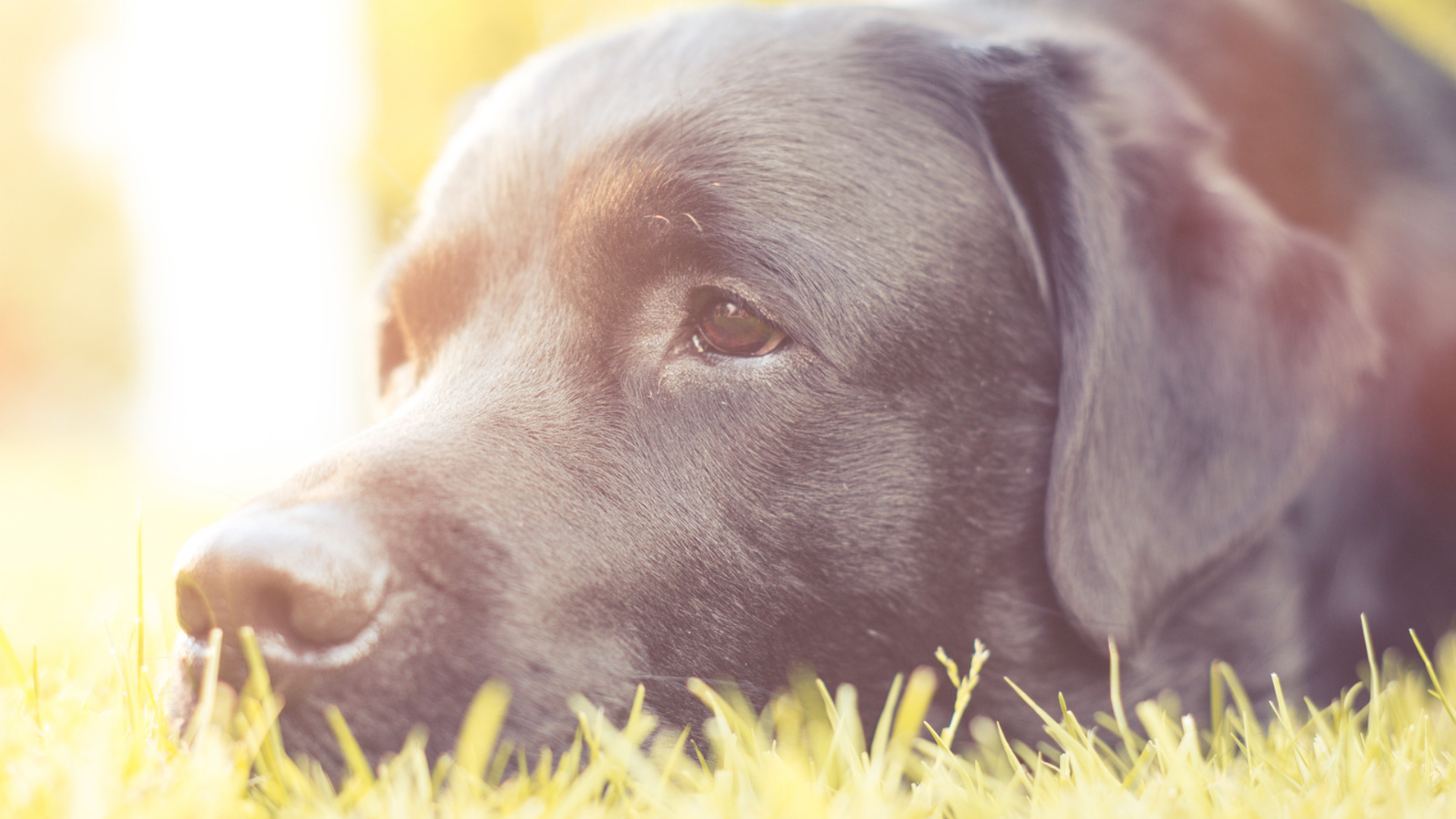The end of a pet’s life is an incredibly emotional and challenging time for any pet owner. It’s natural to feel a profound sense of loss and to grapple with the difficult decisions that need to be made during this period. Seeking compassionate support and understanding can help you navigate your grief.
Here, we offer practical advice to help you through this difficult journey, providing solace and support as you honour your beloved companion’s memory and manage the necessary arrangements.
Guilt after losing a pet
Guilt is a common emotion experienced by pet owners after the loss of a pet1. Many question their decisions, wondering if they could have done more to prolong their pet’s life or alleviate their suffering. It’s important to recognise that these feelings are normal and part of the grieving process. Understanding that you made the best decisions with the information and resources available at the time can help alleviate some of this guilt.
You are not alone
The loss of a pet is a significant event that can leave many pet parents feeling isolated. However, it’s important to remember that you are not alone. Many pet owners experience similar overwhelming feelings of grief and loss. Engaging in self-compassion and seeking support from friends, family, or a pet grief counselor can also help to provide a sense of community, support and understanding that your feelings are valid and shared by many.
Taking time to grieve
Allow yourself time to grieve. Taking time off work or school for the death of a pet is much more acceptable these days than it used to be. Some workplaces now offer pet compassionate leave, recognising the profound impact of losing a beloved companion. Your colleagues are also likely to understand and support you during this difficult time. While some people cope better by returning to their established routines and using work as a distraction, it’s important to do what feels right for you. Whether you need time away to process your emotions or find comfort in the familiarity of your daily activities, prioritise your well-being and give yourself permission to grieve.
Supporting yourself and others
Supporting others, particularly children or elderly family members, through the loss of a pet can be challenging. Listening actively, offering hugs, or simply offering your company, and allowing them to express their grief in their own way is important. Remember to be patient and understanding, as everyone grieves differently.
Caring for your remaining pets
Pets also grieve the loss of their furry companions, and their mourning process should not be overlooked. Signs of grief in pets can include:
- Reduced appetite
- Change in vocalisation
- Sleep disturbances
- Change in social interactions including clinginess and anxiety, signs of which can include pacing or restlessness, or withdrawal2
- Reduction in grooming and/or toileting accidents
- Seeking behaviour: Approximately 60% of pets repeatedly look for lost companions3
Maintaining a consistent routine, offering extra attention and play sessions, and ensuring they get adequate exercise and mental stimulation are all ways to help them cope. Engaging your pet in interactive play, along with new toys or activities, can also help divert their attention and alleviate some of their distress. There are many aids that can also help your pet to cope, and these range from calming pet pheromones to dietary supplements. Simply being present with them can help to provide sufficient comfort, but if you notice prolonged or severe symptoms like depression, consulting with a veterinarian is advisable.
Options for burial and cremation in Australia
In Australia, pet owners have several options for handling their pet’s remains, including burial and cremation.
- Home burial: Many pet owners choose to bury their pets in their backyard. This option requires checking local regulations to ensure compliance.
- Pet cemeteries: There are dedicated pet cemeteries throughout Australia that offer burial services, providing a serene final resting place for pets.
- Cremation: Pet cremation services are widely available, offering individual or communal cremation. Individual cremation allows you to keep your pet’s ashes, which can be stored in an urn or scattered in a meaningful location.
Creating lasting memorials
In addition to burial or cremation, pet owners can create lasting memorials in various ways. Personalised items, such as engraved stones, plaques, or jewelry containing a small portion of the pet’s ashes, can be cherished keepsakes. Online memorial pages and social media groups dedicated to the pet’s memory can also provide ongoing comfort and a place to share memories with others.
Losing a pet is a heart-wrenching experience, but understanding pet end-of-life care and bereavement support can help navigate this challenging time.
Sources
1 American Veterinary Medical Association (AVMA), n.d. Pet Loss. [online] Available at: https://www.avma.org/resources-tools/pet-owners/petcare/pet-loss
2 Pets Academic. (n.d.). How Pets Grieve. Retrieved June 12, 2024, from https://petsacademic.com/how-pets-grieve/#:~:text=Some%20common%20signs%20of%20grief%20in%20animals%20include%3A,their%20human%20companions%20or%20other%20animals.%20More%20items
Society for Human Resource Management (SHRM), n.d. Pet Bereavement Leave. [online] Available at: https://www.shrm.org/resourcesandtools/legal-and-compliance/employment-law/pages/pet-bereavement-leave.aspx
Pets Academic. (n.d.). How Pets Grieve. Retrieved from https://petsacademic.com/how-pets-grieve/#:~:text=Some%20common%20signs%20of%20grief%20in%20animals%20include%3A,their%20human%20companions%20or%20other%20animals.%20More%20items
American Veterinary Medical Association (AVMA), n.d. Pet Loss. [online] Available at: https://www.avma.org/resources-tools/pet-owners/petcare/pet-loss
Best Friends Animal Society, n.d. Pet Loss Support Groups. [online] Available at: https://resources.bestfriends.org/article/pet-loss-support-groups
Society for Human Resource Management (SHRM), n.d. Pet Bereavement Leave. [online] Available at: https://www.shrm.org/resourcesandtools/legal-and-compliance/employment-law/pages/pet-bereavement-leave.aspx
Grief.com, n.d. Grieving the Loss of a Pet. [online] Available at: https://grief.com/grieving-the-loss-of-a-pet/
American Society for the Prevention of Cruelty to Animals (ASPCA), n.d. Pet Loss. [online] Available at: https://www.aspca.org/pet-care/end-life-care/pet-loss
The Children’s Grief Center, n.d. Grieving the Loss of a Pet. [online] Available at: https://childrensgrief.org/grieving_the_loss_of_a_pet
Psychology Today, n.d. Grieving the Loss of a Pet. [online] Available at: https://www.psychologytoday.com/us/blog/finding-a-new-home/201906/grieving-the-loss-pet
Pets Cremations Australia, n.d. Home. [online] Available at: https://www.petscremations.com.au/
Sydney Pet Cemeteries, n.d. Home. [online] Available at: https://sydneypetcemetery.com.au/
RSPCA Australia n.d., Pet funerals – laying your pet to rest, RSPCA Australia, RSPCA Australia, <https://www.rspcapetinsurance.org.au/pet-care/responsible-pet-ownership/laying-your-pet-to-rest>.
Pet insurance can help by covering a portion of the eligible vet bill if the unexpected happens. Because it is difficult to predict the costs of veterinary care, it can help to have measures in place to help prepare for the unexpected. Check out our partner network and explore our policy tools to find a pet insurance policy.
Not all conditions or items are covered by Pet Insurance. Refer to the applicable Product Disclosure Statement for information about coverage and exclusions.



 Fact checked
Fact checked





